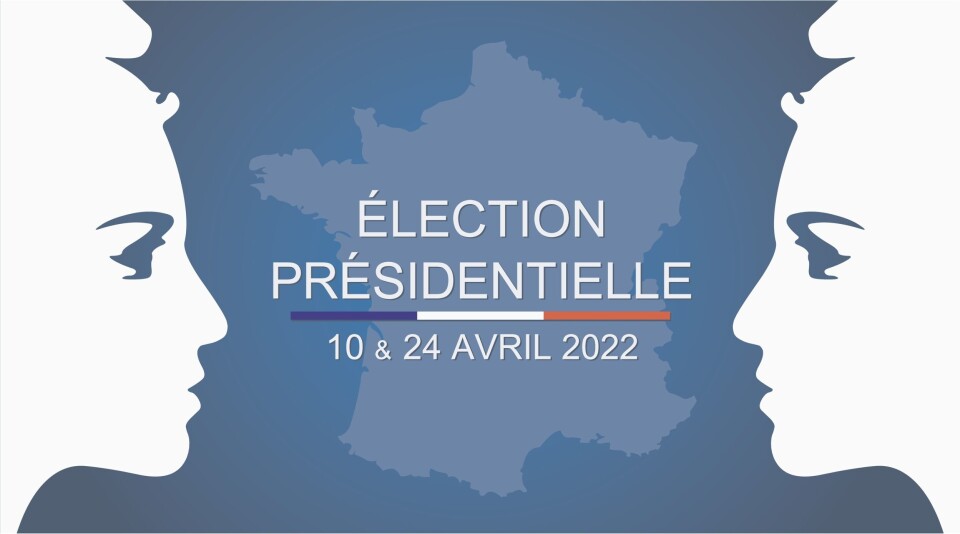-
‘Super flu’ gains ground in France, vaccination urged
Strain of virus is more transmissible than counterparts leaving hospitals at risk of being overrun
-
‘No-licence’ cars: six rules to know in France in 2025
Double the number of these cars were registered in 2024 compared to 2019
-
Hiker videos pack of seven wolves at Alpine ski resort
‘Unprecedented’ video captures wolves roaming on slopes
Expressions you may hear in the lead up to final French election vote
‘Vote utile’ and ’faire barrage’ are often used by politicians and commentators

President Emmanuel Macron and Marine Le Pen have qualified to the second round of the presidential election on April 24.
Read more: Macron and Le Pen qualify: French election live results and comments
We look at four French expressions you may hear or read frequently in the coming days as the election enters the “entre-deux-tours” (between two rounds) phase and the two candidates multiply TV and radio appearances, meetings and prepare for a national TV debate on April 20.
Three of the terms below relate to the far-right.
‘Au premier tour on choisit, au deuxième on élimine’
This often heard sentence means: “During the first round we choose between candidates, during the second round we eliminate [the one we really don’t want].”
It is sometimes used as a reminder of the guiding principles of the presidential election as the expression suggests the first round offers a wide array of candidates representing a good range of ideas allowing voters to choose the one they would most like in office.
The first round’s wide choice can, though, also lead to a dilution of votes among candidates from the same political leaning as happened in 2002 when far-right candidate Jean-Marie Le Pen reached the second round.
‘Vote utile’
The “vote utile” (tactical vote) concept means to choose the most-likely-to-win candidate or the ‘lesser-of-two-evils’ candidate – a vote based on strategy rather than conviction.
The term was mostly employed over the last 20 years to manifest opposition to the far-right. It first appeared in the late 1960s.
The “vote utile” was employed by left-wing socialist candidate Lionel Jospin in 2002 when he was defeated by far-right candidate Jean-Marie Le Pen during the first round of the election.
He called on his voter base to back the conservative Jacques Chirac in the second round, to block Mr Le Pen from reaching office.
The term was first employed by the Communist party during the 1969 presidential election, with its leader Jacques Duclos suggesting he was most suited to face off against Georges Pompidou.
The “vote utile” has been pushed by Jean-Luc Mélenchon (La France Insoumise) during his election campaign this year in an effort to appeal to left-wing voters.
‘Faire barrage à l'extrême-droite’
“Faire barrage au FN” or “faire barrage à l'extrême-droite” means literally to obstruct the far-right. The term sometimes intersects with ‘vote utile’ as during the 2002 presidential election.
It refers to political tactics to try to prevent a far-right candidate gaining power by any means necessary, whether it is through seeking political alliances with their opponents or voting for rivals.
The term was employed by socialist candidate Anne Hidalgo and leftist Christiane Taubira in the run up to this year’s election. They asked their voter base to back anyone but Ms Le Pen in the second round.
Valérie Pécresse, on the other hand, said she would not ask her supporters to back any other candidate in the second round.
‘Dédiabolisation’
“Dédiabolisation” refers to the far-right Rassemblement National party’s efforts to dissociate themselves from figures related to fascism or totalitarian ideas.
This is an effort to appear more “respectable” to voters following years of anti-immigrant remarks. The word can be best translated in English to “de-demonise”.
“Dédiabolisation” was used by Marine Le Pen after she was elected president of the Front National (as the Rassemblement National was previously called) in 2011. This is the most notorious far-right French party, created by Ms Le Pen’s father in 1972.
Ms Le Pen wanted to end the party’s associations to Hitler and anti-immigrant sentiment after years of controversial quotes from her father.
Mr Le Pen suggested, among others, that the gas chambers were “a detail in WWII’s history”, a remark that shocked the nation and for which he was sentenced to give financial compensation to various associations
The party’s change in name from the Front National to the Rassemblement National was said by political observers to be an example of dédiabolisation. The absence of reference of the party’s name (and in fact her own Le Pen name) on her campaign poster can also be seen as an example of dédiabolisation.
The historic score of Ms Le Pen in 2017 (21.3% in the first round and 33.9% in the second round) is the main barometer to measure the effects of “dédiabolisation.”
Her score in the first round of the election (navigating around 23.5% and 23.7% across various polls) is unprecedented for a far-right party under the Fifth republic.
Related articles
‘Problems for organic veg’ and other coded French election messages
Macron - Le Pen: What do they each pledge to change if elected?
























